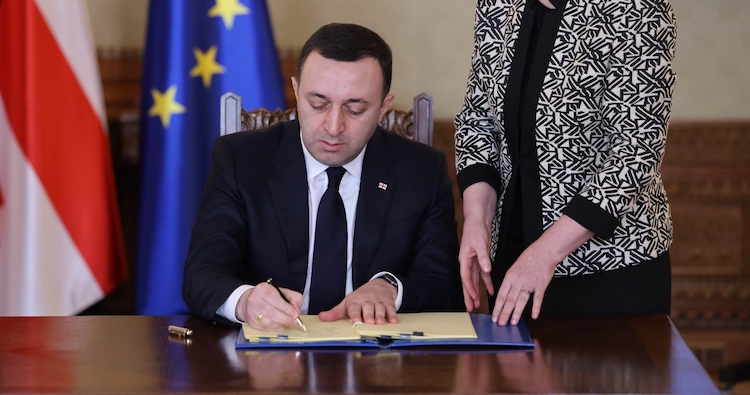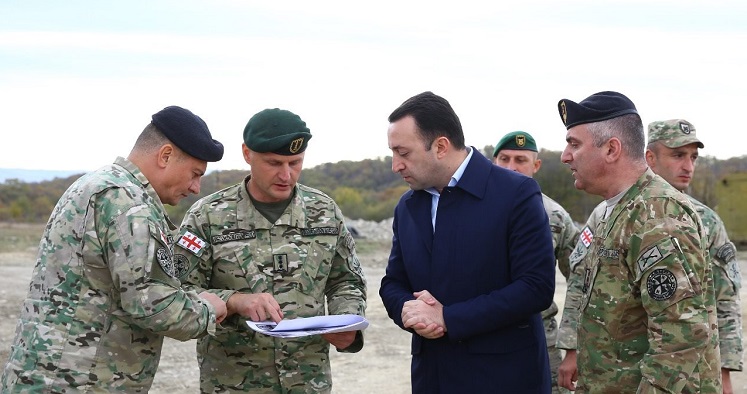PM hails Government’s “historic project” of “direct” energy connection with EU

Georgian Prime Minister Irakli Garibashvili signing the agreement on the Black Sea submarine cable international project. Photo: government press office
Georgian Prime Minister Irakli Garibashvili on Tuesday said the recently signed Black Sea submarine cable international project, a move initiated by his Government, would ensure “direct connection” between Georgian and European energy systems, in comments summing up the Government’s work throughout the year.
The head of the Government stressed the “historic project” - signed earlier this month between Azerbaijan, Georgia, Hungary and Romania in Bucharest, with European Commission President Ursula von der Leyen in attendance - was a “fully Georgian initiative”.
The feasibility study for the deal - designed to transfer green energy to Europe via Georgia - is set to launch in a few months, he said.
The initiative can perform as the second Baku-Ceyhan-Tbilisi project - a guarantee to sell energy. It is a direct connection of our energy system to the European Union market, the European Union energy system, and of course it is a project of historic importance”, he said, noting the total cost of the initiative reached “two to three billion dollars”.
Promoting energy as a key sector - “especially with the background of the Russia-Ukraine conflict” - Garibashvili said his office was doing “its utmost” to ensure large investments in the direction, noting investments in the sector had been halted over the past five years.
My office has actively worked with the International Monetary Fund and reached an agreement over the launch of a new scheme, which has already been approved by the Government”, Garibashvili said, adding his office had also announced a tender for 1500 megawatts of domestic energy production.
He also noted earlier agreements had ensured an additional 800 MW, boosting the estimated domestic energy production capacity by up to 2,300 MW over the next two to three years.
The agreements include hydro, solar and wind energy, which are very important for energy security and energy independence of our country”, Garibashvili said, adding the Russia-Ukraine conflict had resulted in increases of energy prices to an average of 20 cents for kWh in European states, in contrast to “very low prices” for domestic consumers.
The PM also highlighted increasing domestic energy production would allow Georgia to sell its share of electricity to the EU and ensure “hundreds of millions of dollars in income to our country and people”.
 Tweet
Tweet  Share
Share













